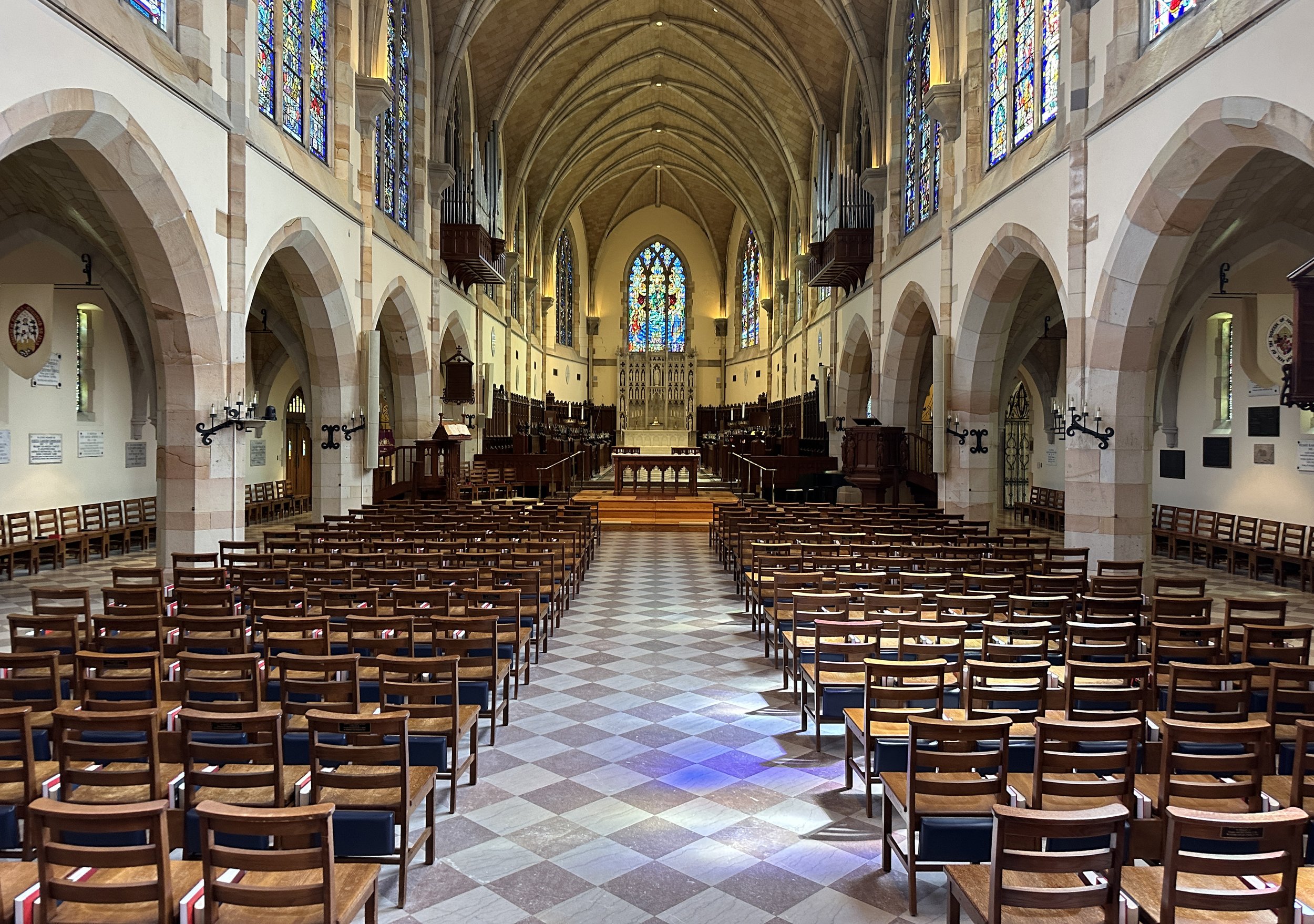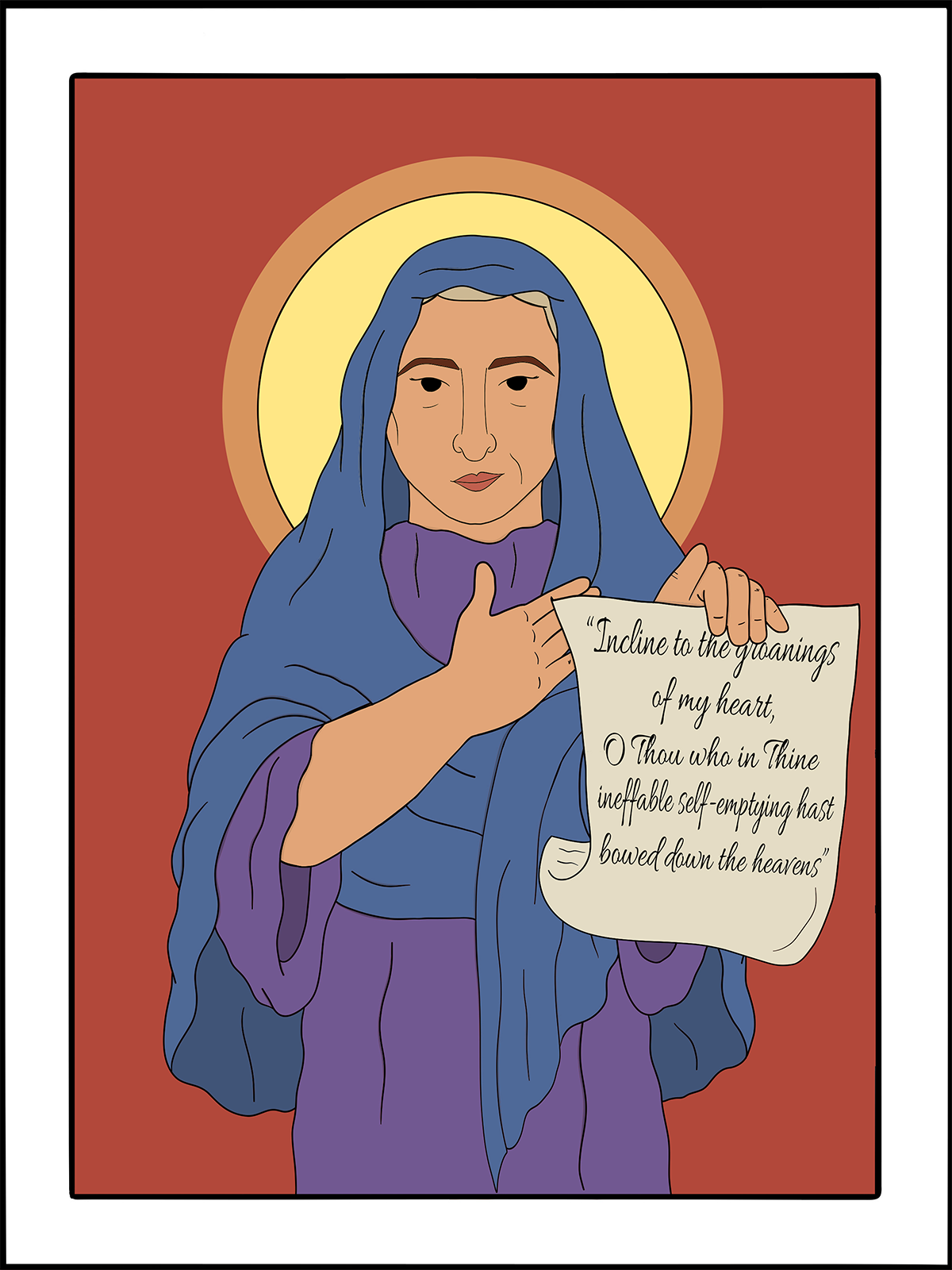
September 7
Kassiani
Poet and Hymnographer, 865
art by Rev. Kirsten Kohr of Geneva, Ohio O God of boundless mercy, whose handmaiden Kassiani brought forth poetry and song: Inspire in your church a new song, that following her most excellent example, we may boldly proclaim the truth of your Word; even Jesus Christ, our Savior and Deliverer. Amen.
Kassiani is the only woman whose writings appear in the official liturgies of the Orthodox Church, and one of only two Byzantine women who is known as an author under her own name. Born to a wealthy family in Constantinople before 810, Kassiani received an excellent education in matters both secular and sacred, impressing bishops and monastic leaders such as Theodore the Studite with her literary style and knowledge while she was still a young girl.
According to three Byzantine chroniclers, when Emperor Michael II of Amorion died, his son Theophilos succeeded him. To find a suitable empress for Theophilos, a “bride show” of eligible maidens was arranged, Kassiani amongst six finalists. In an ancient custom involving the exchange of a golden apple, Theophilos approached Kassiani saying, “From woman [Eve] came our corruption.” Kassiani coolly replied, “But from woman [the virgin Mary] also came our exaltation.” Her bold response evidently proved too much for Theophilos, who then moved past her to offer the apple to Theodora.
After her rejection by Theophilos, Kassiani immediately embraced the monastic life—with what seemed more relief than disappointment at her narrow escape from becoming empress. Her pursuits as a nun included musical and literary accomplishments of distinction, courageous defenses of the veneration of icons, and the founding of a new convent. She was actively involved in the theological controversies of her day, and an iambic verse she penned denotes her bravery: “I hate silence, when it is time to speak.”
By 843, Kassiani had built a convent on Xerólophos, the seventh hill of Constantinople, becoming its first abbess. Most notably, however, Kassiani was a prolific hymnographer and poet. Hundreds of poems and approximately fifty of her hymns are extant, including both her musical compositions and lyrics; of those, at least twenty-three hymns are included in Orthodox liturgical books. The most famous, the Hymn of Kassiani, is sung in the Orthodox Church on the eve of Holy Wednesday.
Excerpted directly from “Lesser Feasts and Fasts 2022,” p. 396-397.

